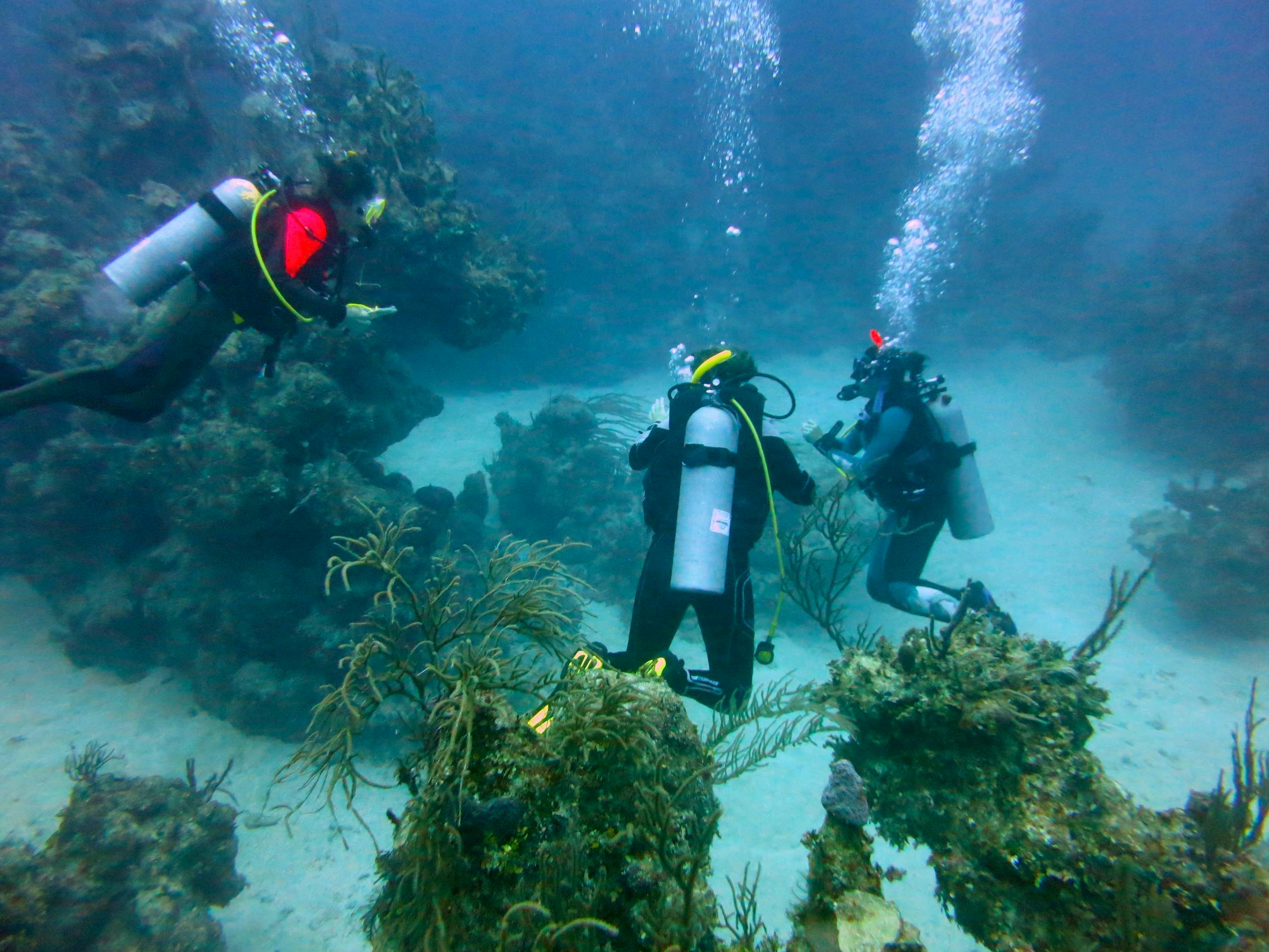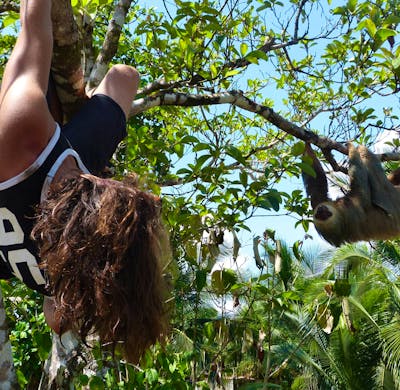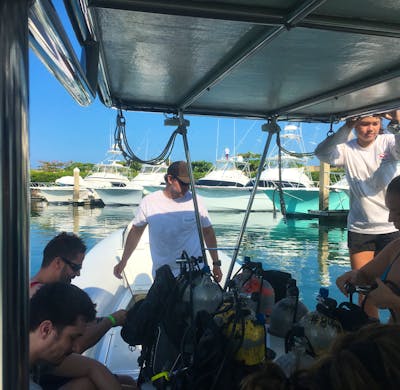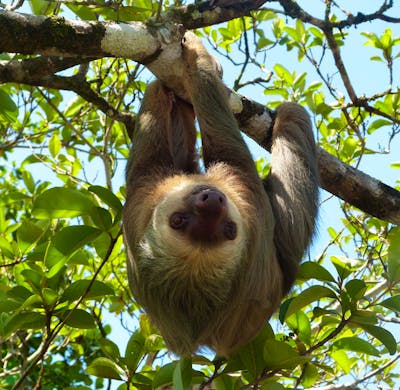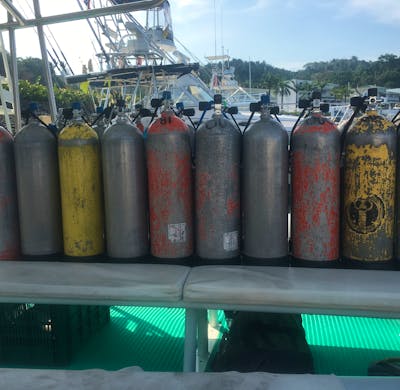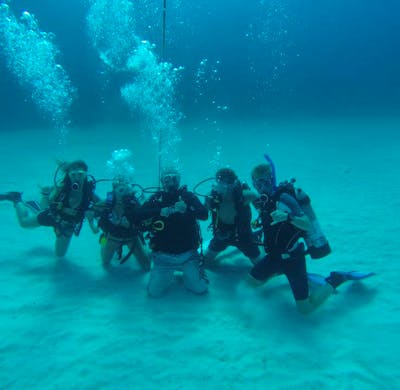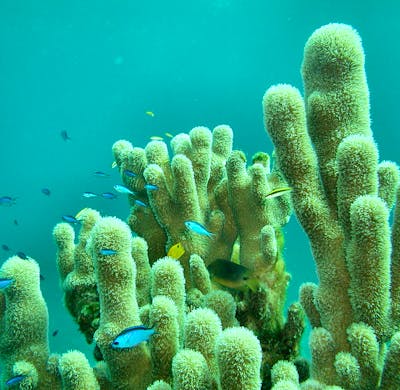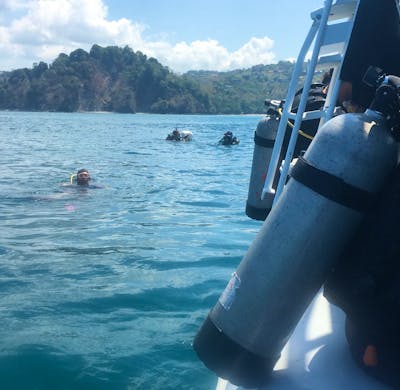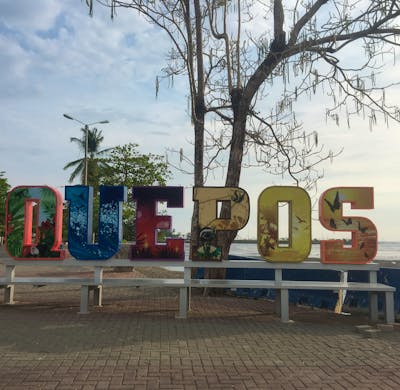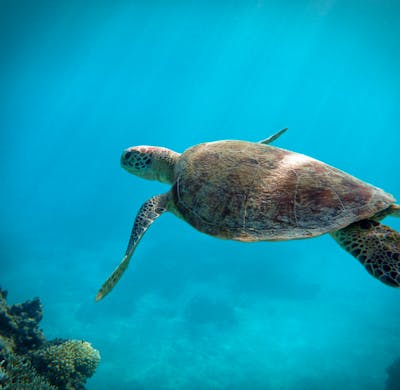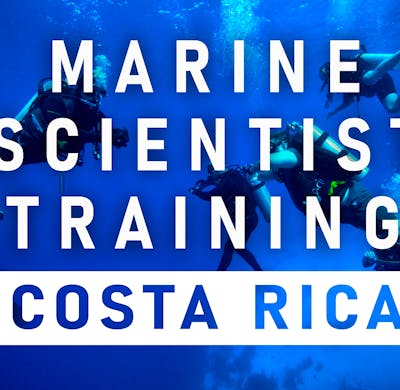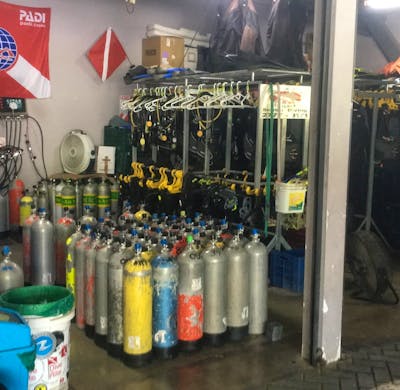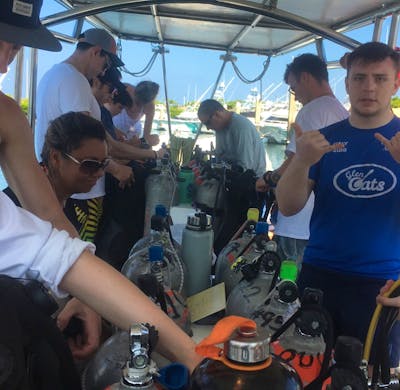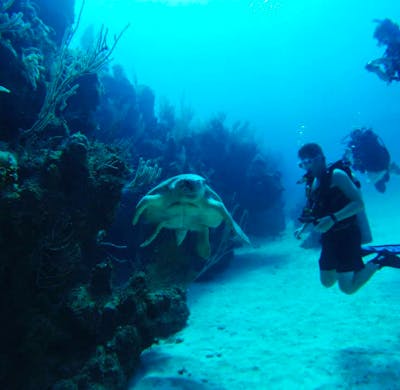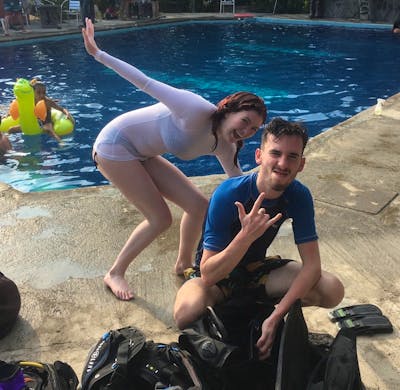We will train you in three different areas to make sure you get all tools needed to support us in our work:
Week 1: PADI Open Water and Advanced Training
You’ll be collected on arrival at San Jose International Airport by one of our in-country
staff and then transferred over to our base camp on the Pacific Coast. Your initial
briefing from the Dive centre staff will prepare you for your action-packed course.
Based at our PADI Educational Dive centre, you will spend the next 10 weeks working
your way up the PADI qualifications.
- PADI Open Water Certification: Your course begins with your entry level PADI Open
Water Diver course which will teach you the basic principles of scuba diving through a
combination of confined Water Dives to learn basic scuba skills and Open Water Dives
to review skills and explore.
- PADI Advanced Open Water Certification: On successful completion of your Open
Water training, you will then move straight onto Advanced Open Water Diver course
which helps divers to increase confidence and build scuba skills to become more
comfortable in the water. This course builds on what you have learned and develops
new capabilities such as underwater navigation, deeper water diving and buoyancy
control fine tuning.
Phase Two: Marine Conservation Training
During the course of the next three weeks, you will be taught a range of science
specialty courses and contribute to the ongoing reef survey work being conducted in
the local marine parks.
Week 2: PADI Marine Conservation and Research
Take part in the only centre in central America offering training and certification in these unique marine conservation programs. Armed with your new certifications, week two marks the beginning of your conservation training when you will learn different research and survey techniques including fish and reef biology. This is the only PADI centre in Central America offering training and certification in these unique marine conservation programs. You will also have the chance to put your new skills to the test this week as you help on one of the many reef surveys taking place in the local marine parks.
Week 3: PADI Nudibranch Awareness specialty and reef surveys
This week you will develop your science training further with Nudibranch awareness. Nudibranchs are some of the smallest most interesting inhabitants of the reef and you will learn about their different behaviours and identification of some local species. As part of this week you will head out onto the reef and complete dives looking for local nudibranch species, as well as continue with the reef surveys from the previous week.
Week 4: PADI AWARE Shark specialty and REEF surveys
Always a favourite topic - sharks are crucial to marine ecosystems, yet are in a global decline. This course teaches you about the value of sharks and what is causing the rapid loss of shark populations. By the end of this week you will also complete your reef surveys and help input the date into the international database which collectively helps monitor the long term health of the reef and the marine life it supports!
For those booked onto the 4-week course, your program ends here. You will be transferred back to San Jose airport for
your flight home.
Phase Three: PADI Dive Safety Training
Week 5: Dive Safety Training and Emergency First Response
Continue your training this week with all things safety and security. Knowing what to do in the event of an emergency is crucial to your dive progression. This week you will complete both your PADI Emergency First Responder and Rescue Diver certifications. This training will complete your recreational dive training and prepare you for your first step into the world of being a professional diver!
- PADI Emergency First Response: The EFR course is a basic First aid and emergency
management course, which teaches internationally recognised first aid and lifesaving
skills. Discover simple to follow first steps in Emergency care. Build your confidence
and willingness to respond when faced with a medical emergency in a non-stressful
learning environment.
- PADI Rescue Diver: Speak with a scuba diver and they will likely describe the PADI
Rescue Diver course as one of the most challenging, yet rewarding courses they have
ever taken. Why? This course will teach you how to prevent and manage problems in
the water. You will become a more confident diver, knowing that you can help others
if needed. During this course, you learn to become a better buddy through practicing
problem solving skills. Plus, you will likely enjoy some contagious laughter and fun
between the focused learning. Topics include: Self-rescue, Recognizing and managing stress in other divers, Emergency management and equipment, Rescuing panicked divers and Rescuing unresponsive divers.
Phase Four: Marine Science Training
Week 6: Marine Scientist Specialties
Your marine science training is about to come full circle as you continue with ongoing conservation work this week. Additionally, you will expand upon what you have learned, completing two distinctive PADI certifications.
- PADI Sponge ecology - From the ecology, to life cycle and identification, this is a fun program highlighting an important integral member of any reef. Hit the coral reef, locating and identifying local sponge species in the area.
- PADI Juvenile Fish ecology - Discover the life of Juvenile fish on the reef. From thir behavior, life cycles and independent roles. Go out and examine the juvenile fish on the local reef, survey and identify for international research.
Phase Five: PADI Divemaster Internship
Weeks 7-10: Divemaster (4 weeks)
The final 4-weeks of your course are dedicated to working your way towards
completing your Divemaster certification, the first professional dive qualification and
an absolute must for all budding marine scientists. Your training during this phase
will become much more hands-on as you learn to become a leader and take charge
of activities. A large part of your training at this stage will include assisting with live
dive shop customers, which is imperative to practice your teaching skill
On completion of the full 10-week course, you will be a fully qualified PADI Divemaster
with a focus on Marine Science and Conservation, ready to act as an ambassador for
the ocean as you develop your chosen career!
Staff: Your dive training will be conducted by highly qualified PADI Dive Instructors, and you
will also have a local supervisor at the Dive Centre who will make sure you have the
best possible experience in Costa Rica. Your local supervisor also provides you with
24/7 emergency support.
Visa: It is up to you to sort out your individual visa requirements and ensure you fullfill any
other entry requirements stipulated for the destination country. Please check the
regulations using the advice of your home countries government before you get on
the plane. Visas can take several weeks to process, so make sure you allow time for
processing.
Flights: The arrival and departure airport is Juan Santamaría International Airport in San Jose
(SJO). You are responsible for booking your own flights or transport to SJO airport.
Information and advice about booking flights will be provided upon booking but please
do not hesitate to contact us if you need further assistance. Do not forget to upload
your flights details on your account before you go!
Climate: Costa Rica is a tropical country with two seasons: dry and green! The dry season with
very little rain is generally between late December and April and the green (or wet)
season runs throughout the rest of the year, but still offers on average 5 hours of
daily sunshine.
Insurance: We insist that you have repatriation and medical insurance before you travel with us
on our trips and expeditions. Please check that your insurance will return you to your
home country in the case of any type of emergency. We also strongly recommend that
your policy includes cancellation & curtailment cover. It should also insure you to dive
down to 40m.
Medical: It is your responsibility to check with your own doctor or travel clinic which
vaccinations are recommended for your expedition and we recommend you do this
at least 2 months prior to the start of your expedition. You must also complete both a
Gapforce & PADI medical form and have it signed by your GP or Doctor.
Kit: Upon booking you will be provided with a comprehensive kit list. Being prepared is of
paramount importance and our advisors are happy to help with any kit related queries
you may have.
Spending Money: You will need money for extra drinks and snacks, as well as for any activities not on
the itinerary. We advise you to budget for $80 - $100 or £50 - £60 a week. Please note
this is a guideline only.
Supervision and Optional Activities: During the course of your program, there will be times outside of scheduled dive
activities when you are not under the direct supervision of Gapforce e.g during free
time at weekends and evenings. During these times, your supervisor and other dive
staff will be in the vicinity but may not be able to intervene immediately in the event
of an emergency and you are therefore expected to act responsibly and be safety
minded at all times. Your program supervisor will provide you with 24/7 contact
details for emergencies.
Any optional activities not included in the program fee that you choose to book with
local activity providers will not have been risk assessed by Gapforce and you will
therefore be outside the jurisdiction of Gapforce from the moment the activity begins
until you return to the group. Check with your insurer beforehand that you are
covered for that particular activity
Travel & Covid-19: Gapforce always follows the advice of the UK Foreign, Commonwealth & Development
Office (FCDO) and will not run programs to a destination whilst the FCDO advises
against travel for tourists.
At destinations that the FCDO considers to be safe, Gapforce will be implementing
preventative measures aimed at reducing the risk of participants and leaders
becoming infected. All group members will be expected to follow required safety
protocols and instructions, however there will still remain a risk of exposure to
the virus that could lead to infection or other consequences, such as periods of
quarantine, during your program. By travelling on one of our programs, participants
are confirming that they accept the risks of travel during this pandemic and will not
hold Gapforce responsible if they become infected with the virus or if their program is
otherwise disrupted due to Covid-19.
It is recommended that all participants have adequate insurance that covers them
for covid-related incidents including medical cover, cancellation, curtailment and
quarantine costs. Check you meet the entry requirements of the destination before
travel. Any covid tests required before or during the program will need to be paid for
by the participant if not provided free of charge by the State.
Further information on the measures and action plans that Gapforce has in place to
respond to Covid-19 will be provided after booking, or on request.
Our Credentials
Here at Gapforce, we are committed to providing the highest levels of customer
service, and we demonstrate this through our accreditation and membership of the
following organisations:
Protected Trust Services (PTS): Through our membership of PTS, we offer full financial
protection for all customer money paid to us through Package
Travel Regulations compliance and the PTS trust account.
Businesses must have extensive experience in travel and
undergo stringent financial and risk checks to qualify as a
member of PTS. Our PTS membership number is 5482.
Year Out Group: We are a full member of the Year Out Group; an association
of approved gap year organisations committed to providing
high operating standards. In order to become an approved
organisation, members must evidence a demanding set of
criteria including liability insurance, financial protection,
program authentication, risk assessments and crisis
management plans.
Young Explorer’s Trust (YET): Our Gap Year and school group programs are BS 8848 compliant
following an external audit of our operating standards by a
panel from YET. British Standard BS 8848 are standards set “for
the provision of visits, fieldwork, expeditions and adventurous
activities outside the UK”. These rigorous standards provide a
recognized benchmark against which to assess the acceptability
of safety and general good practice on overseas expeditions.
WYSE Travel Confederation: We are a member of the World Youth Student and
Educational (WYSE) Travel Confederation. Their global
community consists of over 600 members in 70 countries
and aims “to contribute to the personal and professional
growth of students and young people and positively
impact our global community by fostering international
understanding, responsible international travel, cultural
exchange and education”.
The Duke of Edinburgh’s Award (DofE): We are an Approved Activity Provider (AAP) for the Duke of
Edinburgh’s Award, a leading youth development charity. By
encouraging them to take part in new and exciting activities, the
DofE Award aims “to inspire, guide and support young people in
their self-development and recognise their achievements”.
Pharos Response: We utilise the services of Pharos Response to ensure
our staff both at home and overseas have access to
comprehensive emergency and critical incident support.
Through their team of experienced incident managers,
Pharos Response provides 24/7 support and assistance
in the event of an emergency.
Travel Aware: We’ve partnered with Travel Aware to ensure British nationals
are better prepared for a safe and healthy trip abroad.
Together with the Foreign, Commonwealth & Development
Office, they provide essential travel advice and up-to-date
country information for those living and travelling overseas.
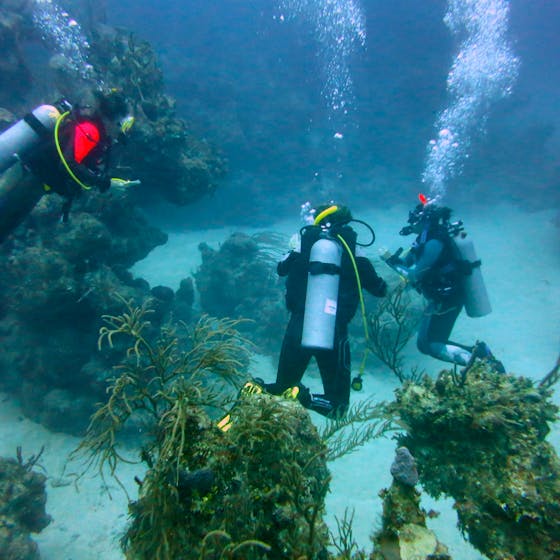
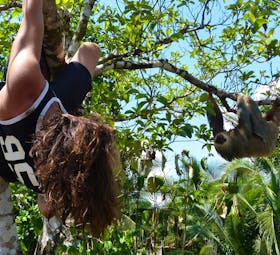
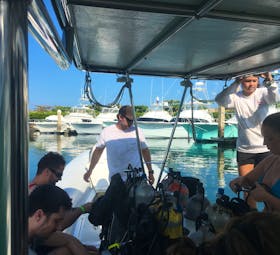
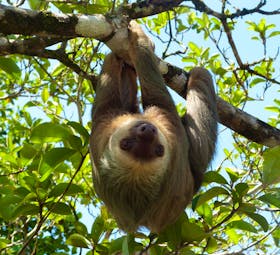
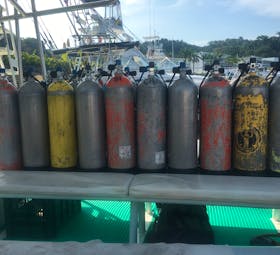

 4.6
4.6

